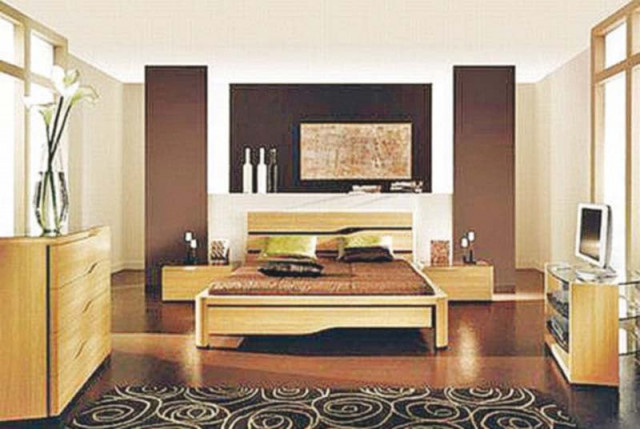Lodging business: Make money renting out spare bedrooms
Most cities have 100,000 listings, Pakistan’s lodgings remain largely absent

Departing guests are encouraged to leave behind reviews which remain visible to future guests to help build reputation and credibility of the host. PHOTO: FILE
The hosts could decide to list their lodgings at any price they felt was right.
The use of massive database operated by airbnb over the Internet allows hosts to post pictures of their lodgings and describe in details its salient features.
By 2015, more than 1 million hosts had listed their data in 31,000 cities across 190 countries in the world. More than 25 million guests had opened their individual account on airbnb and were regularly availing these lodging during their travels. It is estimated that more than $10 billion moved away from the hotel industry last year.
The power of Internet with airbnb’s or other similar websites data base search capabilities allows guests to choose their destination city, dates of arrival and departure, price range that they can afford and several other cues through which they can browse through the database and select the house they wish to be a guest in. Once the search is over, the guest sends a booking request along with his brief introduction. If the host likes the guest, he accepts the offer and the advance payment follows, with a 9-12% commission going to the website.
The host and the guests then communicate directly and co-ordinate the arrival details and share information on location and directions for arrival. In case of cancellation or a no-show, the money may be returned, depending on the refund policy chosen by the host.
Departing guests are encouraged to leave behind reviews which cannot be edited and remain visible to future guests to help build reputation and credibility of the host.
How it works for?
The hosts start making extra money on the side by putting their inventory of spare bedrooms to good use, while the guests no longer feel vulnerable to the vagaries of budget hotels. They can find lodgings at a third of the price of a budget hotel and still live in the comfort of a home, away from home.
In 2008, I paid $80/night in Istanbul at the worst possible establishment that called itself a hotel. Its only claim to fame was perhaps its location in the touristic district of Sultan Ahmet.
Last month, I found an apartment 10 minutes tram ride away from Sultan Ahmet for $30, with an exceptionally caring and friendly host; a brave, less privileged 50 year old widow.
Recently, in Hamburg Germany, my airbnb hostess left her entire apartment, full of art collection at €60/night at my disposal. Quite unexpectedly, she made a cash refund of €100 with an apology for an unplanned building repair work that had started during my stay. She felt that it was a source of disturbance for me.
How is Pakistan faring?
A quick search on airbnb reveals that most major cities in the world have on an average, more than 100,000 listings. There are exceptions like New York, Istanbul, Paris, Sydney, Madrid, Barcelona and London where the listing go up to half a million hosts.
Even place like Sri Nagar has several hundred listings while Dehli, Calcutta and Bombay run into several thousands.
Pakistani lodgings remain largely absent. Islamabad has an astonishingly low 19 hosts. A closer scrutiny reveals that more than half of them are the usual guest houses that have found another channel to lure their guests, typically at $100/night.
Lahore fares slightly better with 24, Karachi with 19, Multan with a single host and the touristic capital of Pakistan, Murree Hills and its environs has a depressing number of 10.
Pakistan may not appear on the tourist map of international travellers yet for the reasons of security, but as a country of nearly 200 million, our domestic travel might well be into millions already.
In summer, most well-heeled escape the scorching plains and head out to the mountains. Thousands routinely travel from towns across the country to queue up for their visa applications at the capital’s diplomatic enclave.
There are more than 30 domestic flights and hundreds of buses that terminate at Islamabad every day. All these visitors can more than make up for the absence of international tourists. I am compelled to arrive at the conjecture that we are simply unaware of this possibility of making extra money from our inventory.
The empty house of our dreams
We have plenty of them. It’s not unusual to have our average house containing at least four and usually up to six bedrooms.
For those of us who have travelled abroad and are familiar with the Spartan lodgings in the West, this is an astonishing amount of sleeping quarters and bathrooms under one roof.
By the time we own our dream house, most children leave for higher education or simply move out and start their own families. The houses remain big on repair and maintenance bills and often with more domestic servants than occupants. The latter often struggle with emptiness and the empty nest; my own mother being one of them.
Last week, having been hassled by the scribe for too long, she reluctantly became an airbnb host by listing her spare bedroom at $30 per night. This was the 19th listing in Islamabad. Within 48 hours, the room was booked for 20 days with a guaranteed income of $600. She’s thinking about hosting her 2nd spare bedroom now.
The writer is an entrepreneur who has worked in Bangladesh’s garment sector
Published in The Express Tribune, May 25th, 2015.
Like Business on Facebook, follow @TribuneBiz on Twitter to stay informed and join in the conversation.



















COMMENTS
Comments are moderated and generally will be posted if they are on-topic and not abusive.
For more information, please see our Comments FAQ